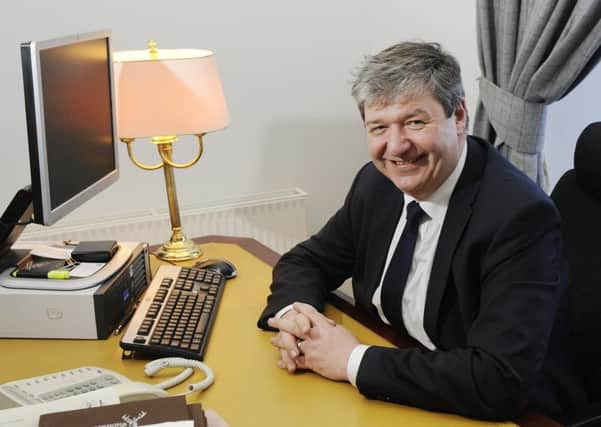Leaders: Carmichael won case but lost public trust


It is not a revelation that politicians can be deceitful and mendacious, nor that they sometimes seek to smear opponents.
In leaking a highly dubious story about the First Minister, Alistair Carmichael no doubt thought he was exhibiting a Machiavellian chutzpah.
Advertisement
Hide AdAdvertisement
Hide AdMaybe he fancied himself as the Liberal Democrats’ answer to Francis Underwood, the fictional agent provocateur in the television series House Of Cards.
Instead the MP for Orkney and Shetland has shown himself to be dishonest and self-serving, not to mention thoroughly inept when it comes to the dark arts.
While yesterday’s judgment of the Election Court was far from being unequivocal, it is abundantly clear that Mr Carmichael had a serious case to answer, and came very close to being removed from office.
Four of the MP’s constituents had brought the legal challenge, arguing that Mr Carmichael had misled voters when he leaked a confidential memo in the run-up to the general election.
The memo claimed First Minister Nicola Sturgeon secretly wanted Conservative leader David Cameron as prime minister rather than his Labour opponent Ed Miliband.
Her comments were said to have been made to the French ambassador, Sylvie Bermann, but both Ms Sturgeon and the French consul denied the remark was ever made.
To compound matters, Mr Carmichael denied prior knowledge of the leak in an inteview with Channel 4.
Judges yesterday said that had been a “blatant lie”. This is a damning verdict on Carmichael who, it should not be forgotten, was then the Secretary of State for Scotland.
Advertisement
Hide AdAdvertisement
Hide AdFollowing a Cabinet Office inquiry, Mr Carmichael later admitted he had allowed his special adviser, Euan Roddin, to release details of the document, which appeared in the press.
Dismissing the petitioners’ case, the Election Court said it had not been proved beyond reasonable doubt that the MP had committed an “illegal practice”.
Mr Carmichael is free to remain an MP, largely because of the very specific definition of what constitutes an offence under the Representation of the People Act. Morally speaking, however, his credibility is in pieces.
Speaking after yesterday’s judgment, the MP said the case against him had been “highly politically motivated”. But he had set the ball rolling with his own conduct. His attack on Ms Sturgeon was the very definition of a politically motivated action, and he is in no position to complain if, when his blunder has been exposed, there are consequences to face – such as angry members of the public.
Mr Carmichael said he would continue to serve his constituency, adding that is was an “honour and a privilege” to be a member of parliament.
Yet he has damaged trust in the parliament he so reveres. Meanwhile, the Parliamentary Commissioner for Standards has confirmed an inquiry remains ongoing.
Mr Carmichael was the winner yesterday, but he would do well to avoid any attempt at claiming vindication. This episode should remain, for him, a matter of personal regret.
Confusion makes inquiry inevitable
Doubts over the Forth Road Bridge saga refuse to go away, and we are hardly any closer to a satisfactory explanation for its closure than we were last week.
Advertisement
Hide AdAdvertisement
Hide AdThe bridge is shut until the new year for repairs after a large crack was discovered in a truss under the carriageway.
Transport minister Derek Mackay now admits that if planned work had been carried out five years ago, the section that has forced its closure this month would have been replaced.
But up until yesterday, we had been told by the minister that the work proposed in 2010 and the area requiring repair now were two entirely separate matters.
He appears to be covering this position by stating that the government has been “transparent about the issues as they have emerged”.
Put another way, this could be interpreted as: “We might have said that at the time, but maybe it wasn’t strictly accurate.”
The minister does, however, have a point when he says that had the recommended work been carried out in 2010, there would still have been serious disruption. Indeed there may have been even more disruption than the current crisis will inflict on commuters. replacing a section of the bridge would be a major undertaking, so it’s hard to argue that the current situation was completely avoidable.
The infrastructure and capital investment committee of the Scottish Parliament will now deliberate on ordering such an inquiry when it meets next Wednesday. Even the minister himself says he would welcome it.
But the first priority must be fixing the bridge and getting Scotland moving again. Then attention can turn to providing the answers that the public deserves.